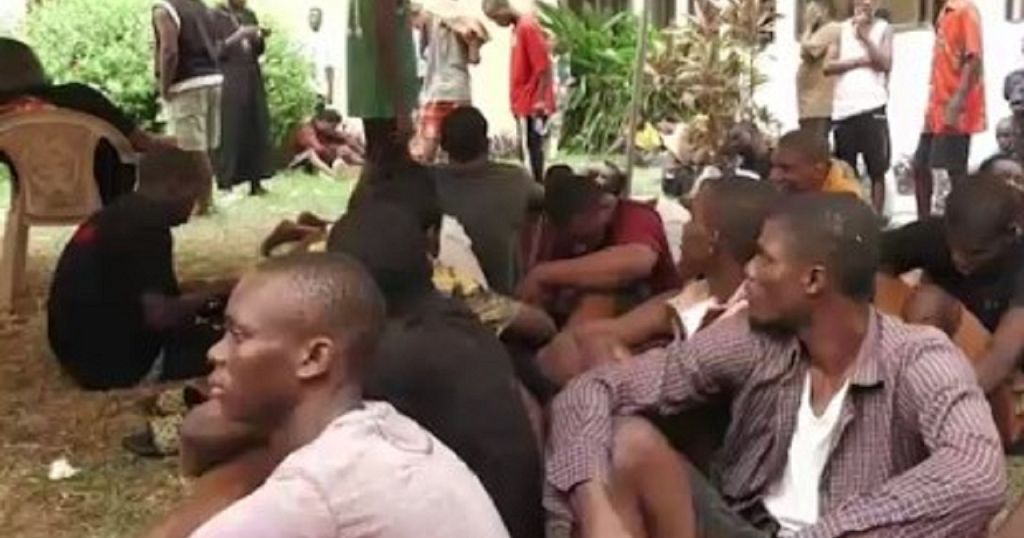Africa
219 rescued from human trafficking and cybercrime ring in Ghana

In a sweeping operation led by the Economic and Organised Crime Office (EOCO), 219 people—primarily foreign nationals—have been rescued from a suspected human trafficking and cybercrime ring operating in Oyarifa, a suburb of Accra.
The victims, mostly young individuals from across West Africa, were lured into Ghana with false promises of well-paying jobs and a better life. Instead, they were held against their will under harsh and exploitative conditions.
At a press briefing, EOCO’s Acting Executive Director, Abdul Bashiru, revealed that many of the victims had been confined for extended periods, with some enduring over a year in captivity. “A Nigerian victim disclosed that he was fed only once a day and had no freedom to leave the premises,” Bashiru said.
Authorities uncovered a trove of evidence at the scene, including laptops, internet routers, and other tools believed to have been used in online fraud schemes. Victims were housed in crowded, unsanitary conditions, forced to work long hours under surveillance.
EOCO, in partnership with the Criminal Investigations Department (CID), the Nigerian High Commission, and international stakeholders, has begun a detailed screening process to separate victims from suspects, and to identify minors among those rescued.
During the ongoing operation at Kunzak Estates in Oyarifa, journalists captured visuals of suspects being lined up, screened, and resting on EOCO’s premises while investigations continued. Officials say they expect the screening process to be completed within 24 hours.
Abdul Bashiru emphasized EOCO’s commitment to dismantling the entire trafficking network: “We’ve mapped out strategies for stronger collaboration between EOCO and the CID to intensify efforts against transnational organized crime.”
Repatriation plans for many of the victims—particularly Nigerian nationals—are already in motion. EOCO also confirmed that similar operations are being rolled out in other parts of the country, targeting what it calls a “well-coordinated trafficking network.”
This latest operation highlights Ghana’s growing role as a transit and destination point in the fight against cross-border human trafficking and cybercrime.
